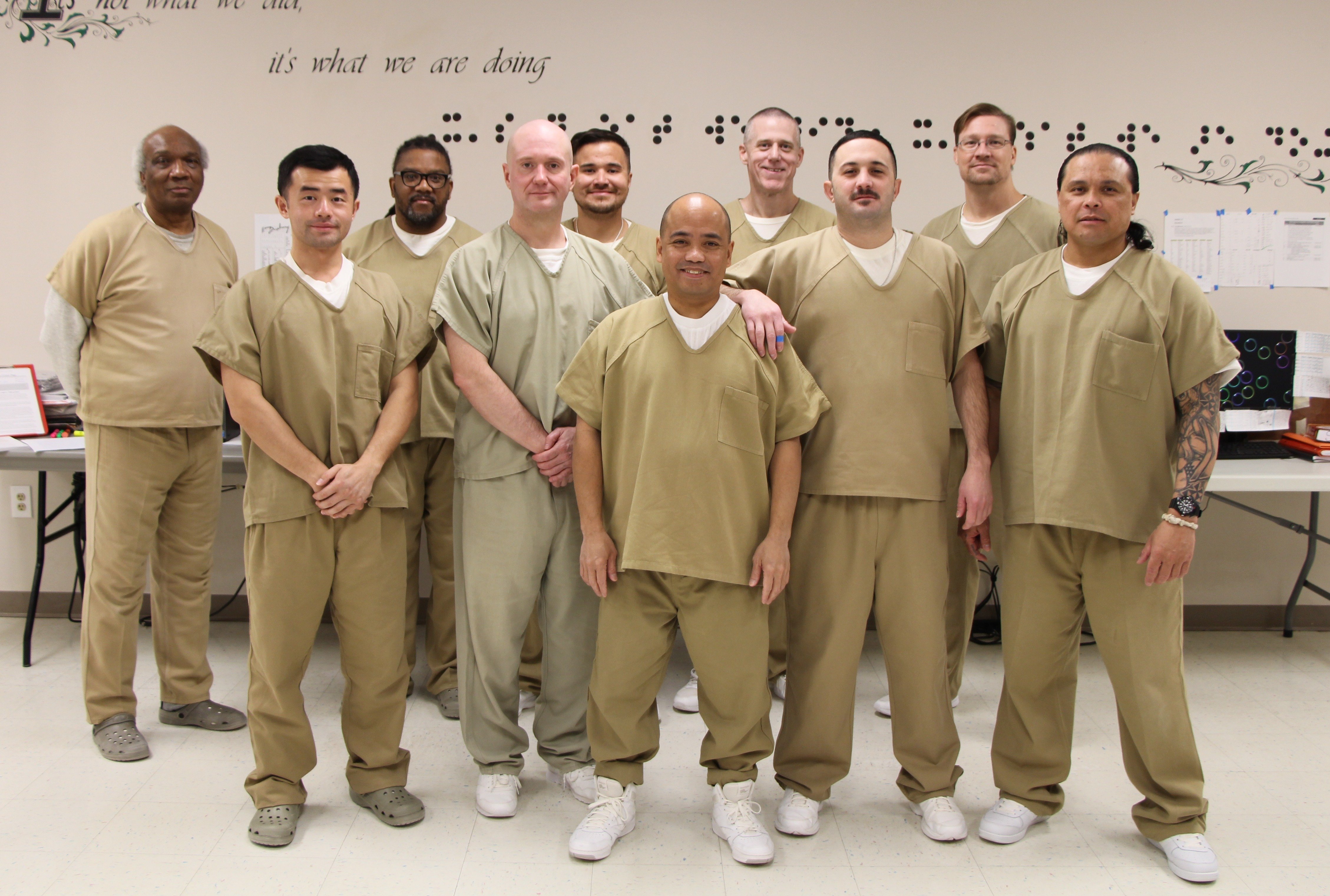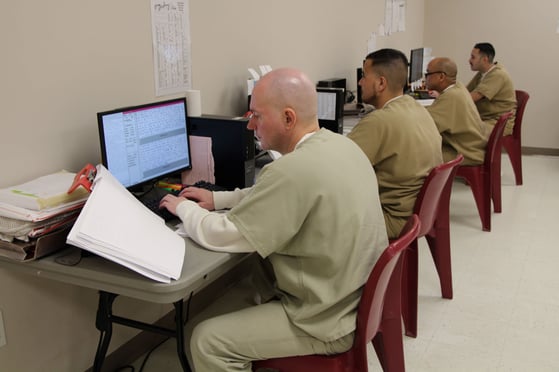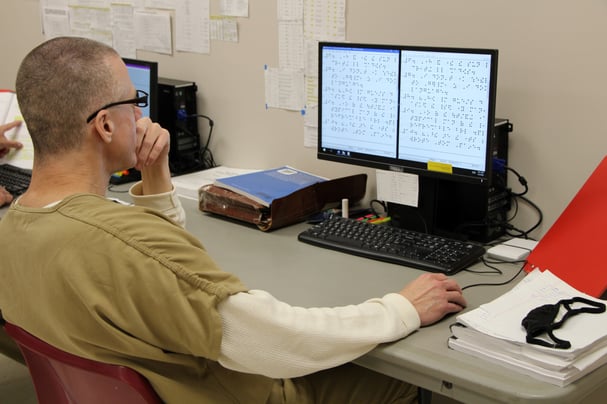
Vocational reentry programming is designed to prepare justice-involved individuals to rejoin their communities equipped with marketable skills they can use to gain employment. We often hear, however, the most rewarding programs offer those in our care the opportunity to help others while they also work to better themselves.
One great example of such a program is up and running at CoreCivic's Saguaro Correctional Center in Eloy, Arizona, where participants are transcribing braille for schoolchildren who are impacted by blindness or visual impairment. The program is offered through a course by the Foundation for Blind Children (FBC), an organization that serves individuals of many ages who are blind or visually impaired. With three locations in Arizona, FBC is the only agency of its kind in the state.

To participate, residents must apply to enroll in the Literary Braille Transcribing program. The course consists of 19 self-paced lessons and a final trial manuscript submission, which can take 12 to 18 months to complete. Those who complete the program receive a certificate from the Library of Congress as a Unified English Braille (UEB) Literary Transcriber and are qualified to transcribe textbooks for students of all ages.
Once certified as a UEB Literary Transcriber for at least six months, participants are then eligible to become certified through specialized braille programs, including:
- Mathematics Braille Transcribing Course
- Literary Braille Proofreading Course
- Mathematics Braille Proofreading Course
- Music Braille Transcribing Course
- Braille Textbook Formatting (certification by examination)
"Without access to braille, a blind student is invisible in the classroom, and they simply don’t have a way to access the curriculum without those books. The work done in Saguaro and our other units is absolutely invaluable," said Kelly Pritts, Braille Production Manager at the FBC. "The prison braille program is life-changing for the students, and also for the inmates. [The program] gives them a unique way to serve others while gaining skills that give them a career upon release."
Once released, participants who successfully complete the Literary Braille Transcribing program are eligible for a contracted position with the FBC or with other agencies in the transcribing field. In fact, an individual who is certified in braille mathematics or science—or who has the skill to create tactile graphics—can earn $25,000 to $30,000 on transcribing one textbook. Transcribing novels can earn a transcriber $2,000 on average.
"We are grateful for our partnership with the Foundation for Blind Children so that we may provide this meaningful program at Saguaro," said Deborah Powell, assistant warden of Programming at Saguaro. "It is a really exciting opportunity for those in our care to give back to the community, as well as earn a niche skillset that is marketable in the job market upon release."
When asked about his motivation behind enrolling in the braille program at Saguaro, one participant shared that he felt moved by the sense of purpose his transcribing work provided.
"I am extremely fortunate to have this unique opportunity to learn braille at Saguaro," said Gerald Galaway, a braille program participant. "I am most interested in seeing how different combinations of raised dots formulate words, numbers, and phrases into an understandable language for the visually impaired. I am happy to work with a sense of purpose in a cooperative and collaborative environment with nine of my peers, where we look out for one another's best interests in learning a complex language."

Galaway continued.
"It is my hope that upon my release from prison, I can continue to transcribe printed books and materials into braille for blind children on a full-time basis," he said. "I welcome the chance to give back to the community in my quest to redeem myself with society. I know that the work I am doing will someday help to give blind children an equal opportunity to learn along with their sighted classmates."
At this time, 10 residents are enrolled in the UEB Literary Braille Transcribing program at Saguaro. According to data, there are approximately 1,000 braille transcribers nationwide today; there is a need for an additional 1,000 transcribers by 2025.
